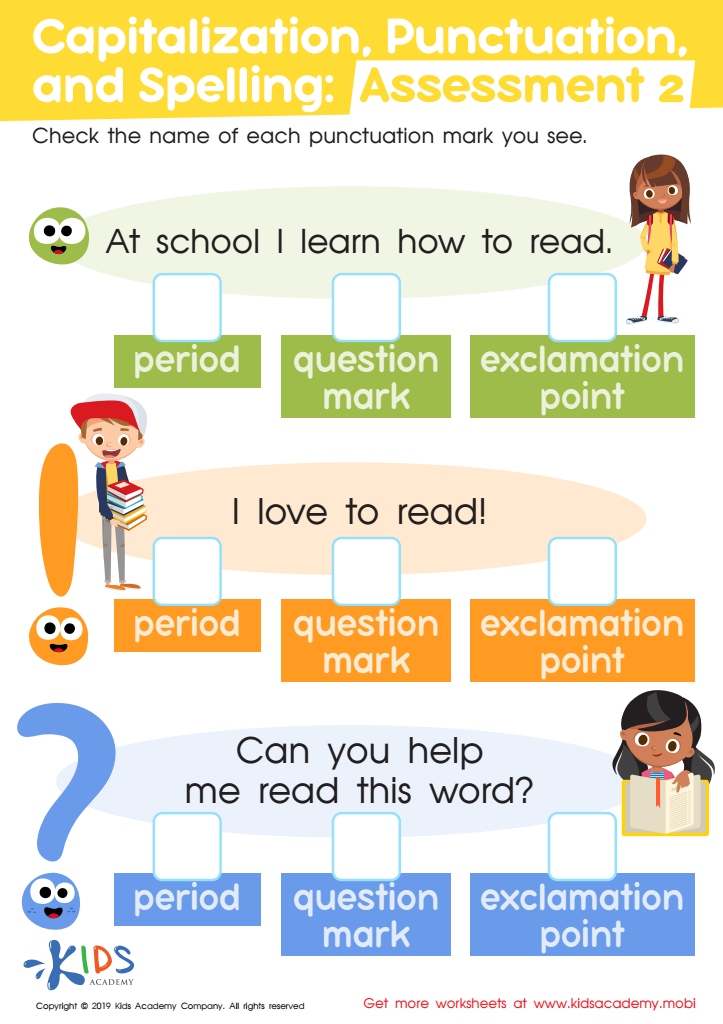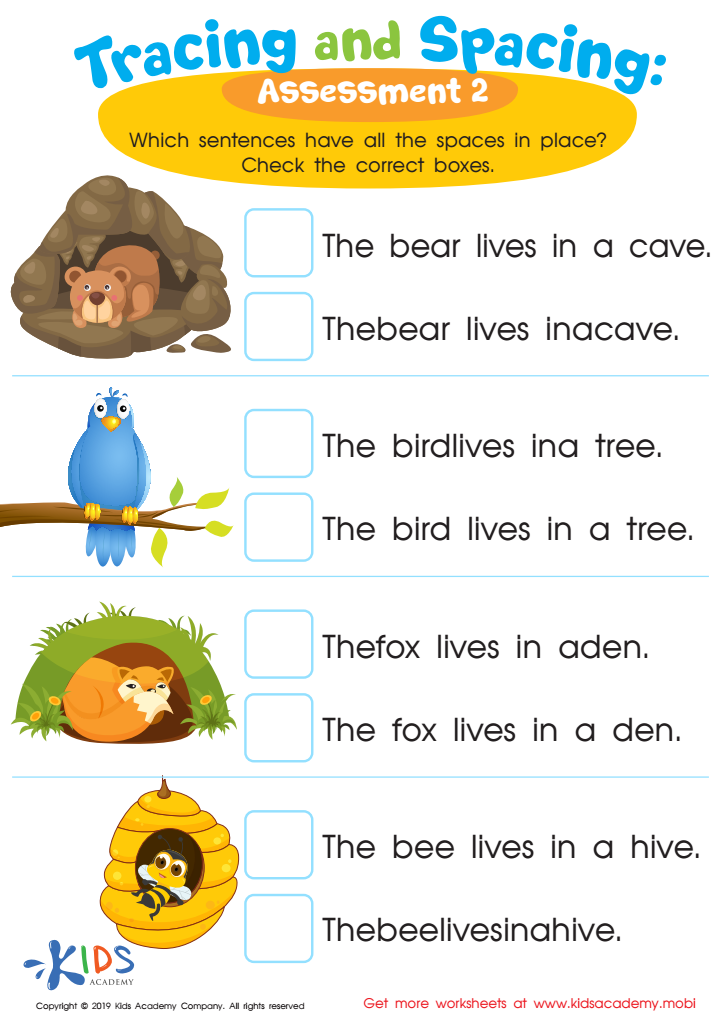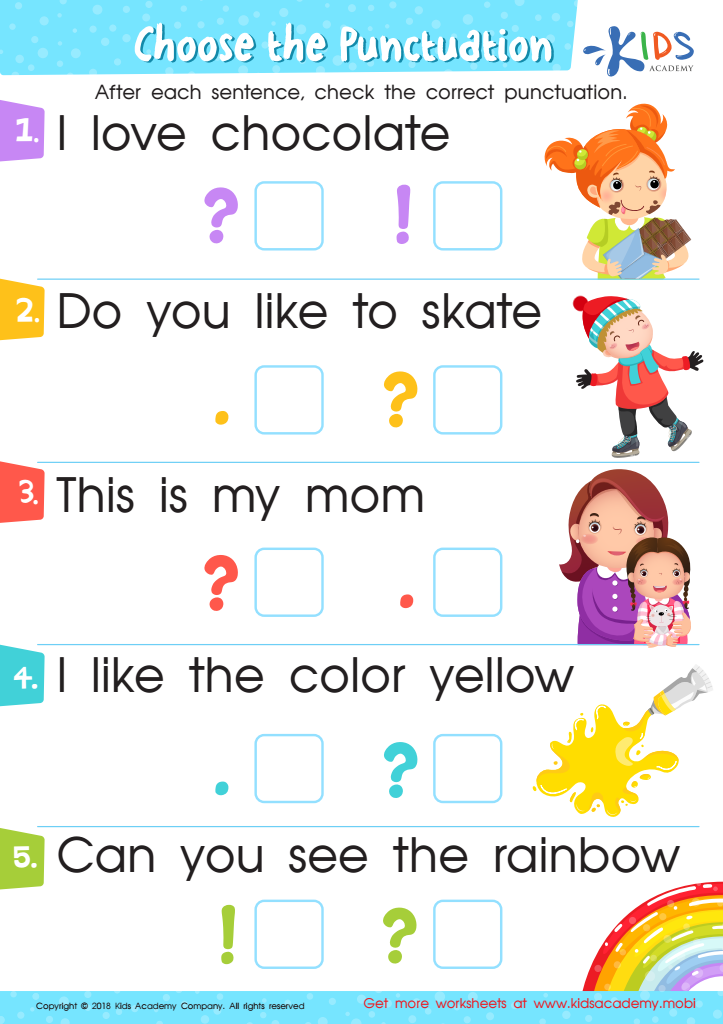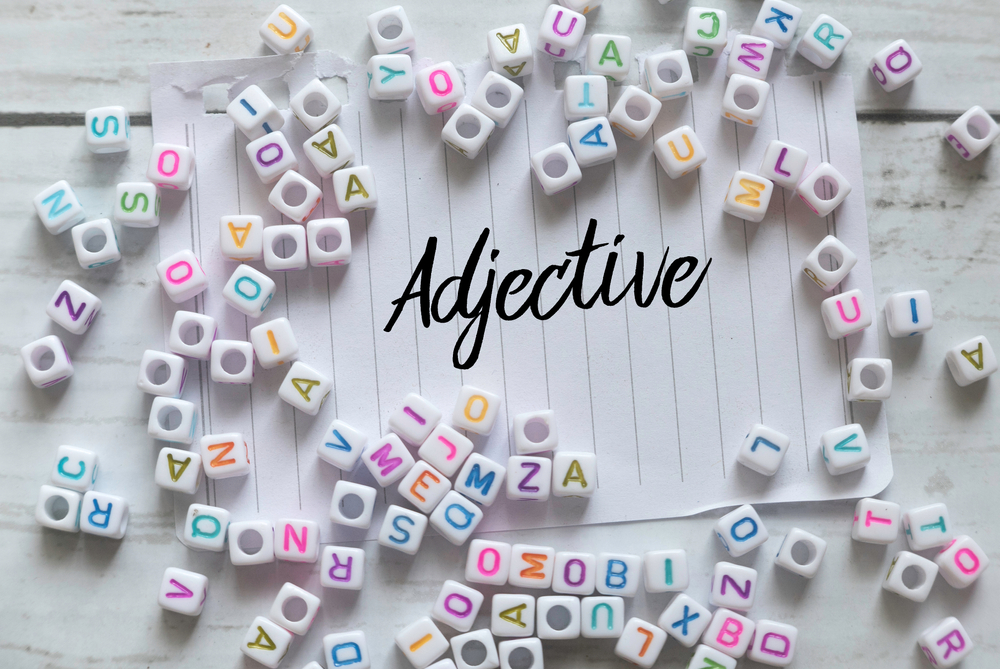Punctuation worksheets activities for Ages 4-7
3 filtered results
-
From - To
Unlock the power of punctuation with our engaging worksheets designed for ages 4-7! These fun activities provide young learners with interactive ways to explore the basics of punctuation, fostering essential skills for reading and writing. Through colorful illustrations and age-appropriate exercises, children will learn about periods, commas, question marks, and exclamation points. Our thoughtfully crafted worksheets encourage creativity while reinforcing foundational language concepts. Perfect for both classroom settings and home learning, these resources will inspire confidence in young students as they discover the importance of punctuation in communication. Start your child's journey to becoming a punctuation pro today!


Capitalization. Punctuation. Spelling: Assessment 2 Worksheet


Tracing and Spacing: Assessment 2 Worksheet


Choose the Punctuation: Assessment Worksheet
Punctuation activities for ages 4-7 are crucial in laying the foundation for young learners as they begin to understand the structure of written language. At this developmental stage, children are not only learning to read and write but also to communicate their thoughts clearly. By engaging in punctuation activities, they develop essential skills such as sentence construction, clarity, and comprehension.
Teaching punctuation at an early age fosters confidence in writing, as children learn how to use basic punctuation marks like periods, question marks, and exclamation points. These activities can transform an often-overlooked aspect of writing into an exciting, hands-on learning experience through games, storytelling, and interactive play. This makes understanding the nuances of punctuation enjoyable and relatable.
Furthermore, mastering punctuation helps enhance children’s reading skills, enabling them to correctly interpret meaning, tone, and emotion in sentences, which is vital for effective communication. Parents and teachers who promote punctuation awareness empower students to express themselves more coherently, laying the groundwork for lifelong literacy skills. As they progress in their education, this foundational knowledge becomes increasingly important, preparing them for more complex writing and reading tasks as they grow.
 Assign to My Students
Assign to My Students



















